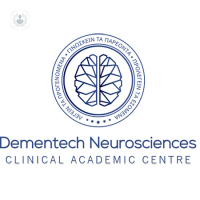Hypersomnia
Professor Matthew Walker - Neurology
Created on: 02-28-2017
Updated on: 03-28-2023
Edited by: Karolyn Judge
What is hypersomnia?
Hypersomnia is a sleep disorder in which the patient suffers from daytime sleepiness and struggle to stay awake throughout the day. Hypersomnia may occur due to unknown reasons, or it may result from other issues, such as sleep apnoea or insomnia.
Hypersomnia is a condition that significantly affects the person who suffers from it, decreasing their performance capacity, both at work and socially.
There are different types of hypersomnia:
- Idiopathic or primary hypersomnia: the causes are not known. People suffering from primary or idiopathic hypersomnia can sleep up to 20 hours and remain tired and be irritable.
- Secondary hypersomnia: when their daytime sleepiness results from secondary causes, such as sleep deprivation, either because of insufficient sleep or because it is interrupted. It may also result from some drugs or medications, or a medical or psychiatric disorder. In this case, hypersomnia is the symptom of the disorder, not the disorder itself.

Prognosis
Hypersomnia can be serious in the sense that it affects the day-to-day life of the patient, as well as their work and personal relationships. In addition, hypersomnia patients could fall asleep at very serious times, endangering their lives. Sleep disorders greatly impair the patient's overall quality of life, and other problems are associated with them. Narcolepsy is the most severe type of hypersomnia, causing excessive drowsiness and uncontrollable and frequent sleep attacks throughout the day, occurring every 3 to 4 hours. Furthermore, the urge to sleep is irrepressible and incapacitates the patient to continue their daily routine.
Symptoms of hypersomnia
People suffering from hypersomnia have great difficulties in staying awake, which causes fatigue, tiredness, loss of concentration and a lapses in attention.
The key characteristics of hypersomnia are:
- Napping throughout the day without feeling revitalised
- Sleeping for long hours at night
- Falling asleep in the day, even when performing other activities.
Medical tests for hypersomnia
First of all, the doctor will make a physical examination and take a history of sleeping patterns and behaviours. The specialist may also request the following tests:
- Blood test
- CT scan
- Polysomnography (sleep study)
What are the causes of hypersomnia?
The causes of hypersomnia are varied and in most cases there are usually underlying disorders or problems, such as:
- Sleep apnoea;
- Narcolepsy;
- Depression;
- Sleep deprivation;
- Drugs or alcohol;
- Prescribed medications;
- Neurological disorders (e.g. Parkinson’s or multiple sclerosis).
Can hypersomnia be prevented?
Hypersomnia can only be prevented in cases of secondary hypersomnia, that is, if excessive sleepiness is caused by sleep deprivation, then addressing should prevent hypersomnia.
It’s also important to have good sleep hygiene in general:
- Maintain regular sleep schedules and routines, by getting up at the same time each day;
- Relax before going to bed;
- Do light physical exercise about three days a week.
Treatments for hypersomnia
Treating hypersomnia is very important as it's a condition that can significantly affect quality of life, and can even be dangerous. It's recommended to improve sleep hygiene where possible. Certain patients may also be advised to avoid driving heavy machinery or vehicles.
For cases of secondary hypersomnia, the underlying cause should be addressed accordingly. Depending on the underlying cause of secondary insomnia, the following treatments may be suggested:
- CPAP machine for sleep apnoea;
- Anti-depressants;
- Medications
- Eliminating caffeine and alcohol
- Cognitive behavioural therapy (CBT)
Which specialist treats hypersomnia?
The specialist who treats hypersomnia and other sleep disorders may include neurologists, psychologists and specialists in respiratory medicine.





